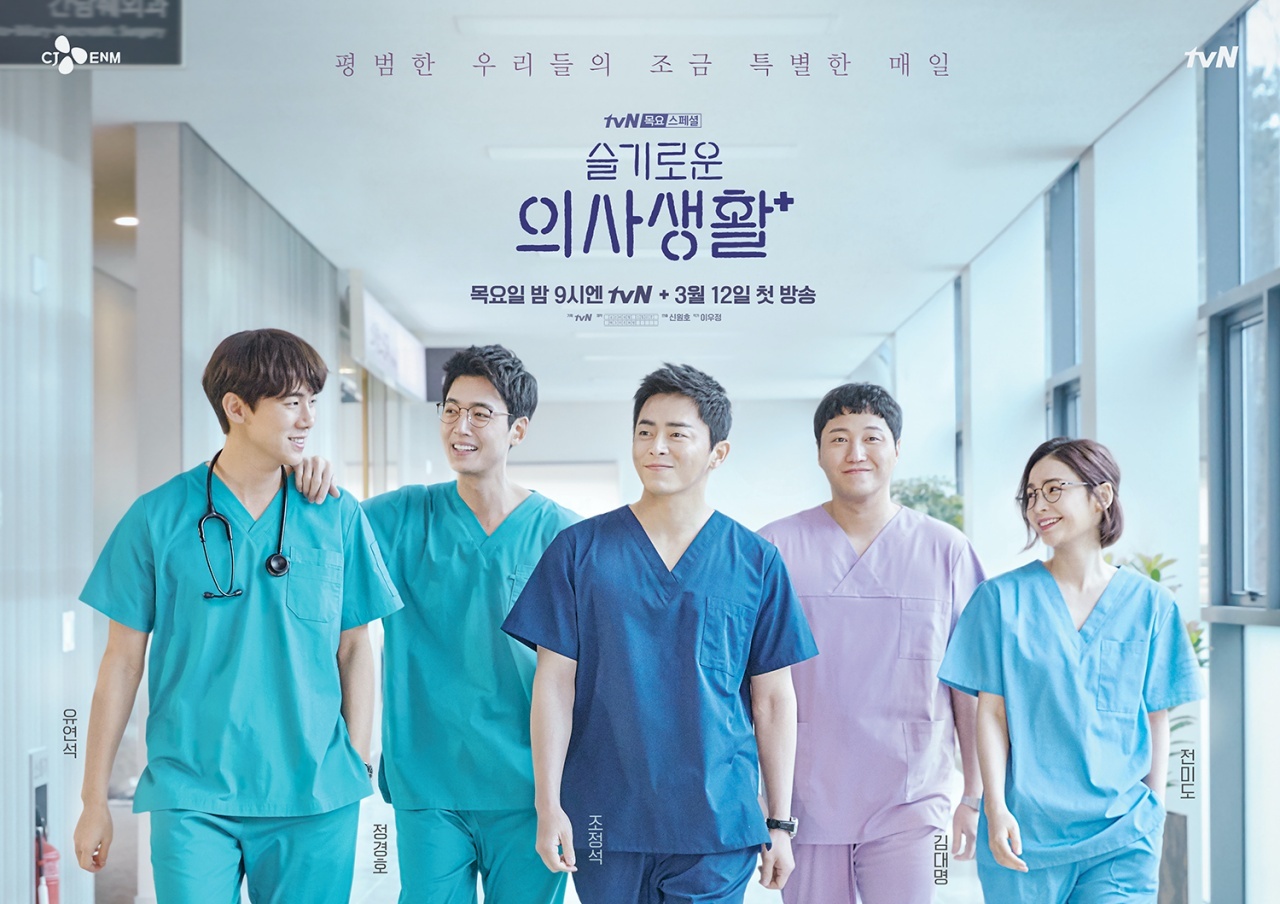SEOUL — One does not have to be a doctor or a nurse to be able to relate to what happens inside hospitals, where lives are born and deaths pronounced, wounds are healed and hurt minds are treated.
It is for such reasons, perhaps, that medical dramas have flourished in the recent decade or so, the stories and themes becoming more diverse with time.
Two of the most popular TV dramas so far this year take place in a hospital.
The second season of SBS’ “Dr. Romantic” racked up a 28.4 percent viewership rating, a figure higher than the highest rating from the first season that aired in 2016. TvN’s “Hospital Playlist” saw the viewership rating jump from the first episode’s 6.3 percent to 12.1 percent for last week’s episode.
“There are many elements inside a hospital that can cause dramatic tension. Not only the urgent life-and-death issues, but the power conflict between the protagonist and the antagonists in the hospital are also elements that grip viewers’ attention,” TV drama critic Yun Suk-jin told The Korea Herald.
“And the real drama in a medical series comes with the character resembling the ideal doctor, who puts the lives of the patients at the forefront. Dr. Kim in ‘Dr. Romantic’ is a typical example,” said Yun, a professor of modern Korean literature at Chungnam University.
Past hit medical dramas such as “Behind the White Tower” and “New Heart” — both of which aired in 2007 — are typical medical dramas, revolving around life-and-death situations and power struggles.
However, the past few years have seen the emergence of hospital-themed shows that diverge from such classical formulas, delving, instead, into the more human and day-to-day aspects of a hospital life.
“Hospital Playlist” is one such example. Following the friendship of five doctors in their 40s, each episode features stories of relationships between the characters, whether it be the protagonists, their families, fellow doctors, nurses or patients.
“The drama did away with the cliched power conflict, and focused on the doctors’ sincerity in their work and their relationship with the patients,” Yun said.
Indeed, producer Shin Won-ho previously said that “Hospital Playlist” is “a witty human drama revolving around a group of close friends,” just like his previous “Reply” series. “But this time, it takes place in a hospital.”
The portrayal of different occupations inside the hospital organization also accounts for the more dynamic storyline of “Hospital Playlist” where the five friends work in different departments.
Meanwhile, “Soul Mechanic,” a recently launched series on KBS2, is a human drama about a psychiatrist.
There are also some medical dramas where doctors are not the lead characters.
A drama about nurses is expected this year. The upcoming series will be based on 2018’s “I am a Nurse, a Human,” written by a Korean nurse who had worked in an intensive care unit for more than 21 years.
“Past medical dramas mostly involved surgeons or emergency room doctors, because they could easily make for visually capturing scenes. Now the focus has completely changed, and the hospital life is only a means to talk about ordinary people and their lives,“ said Yun.
